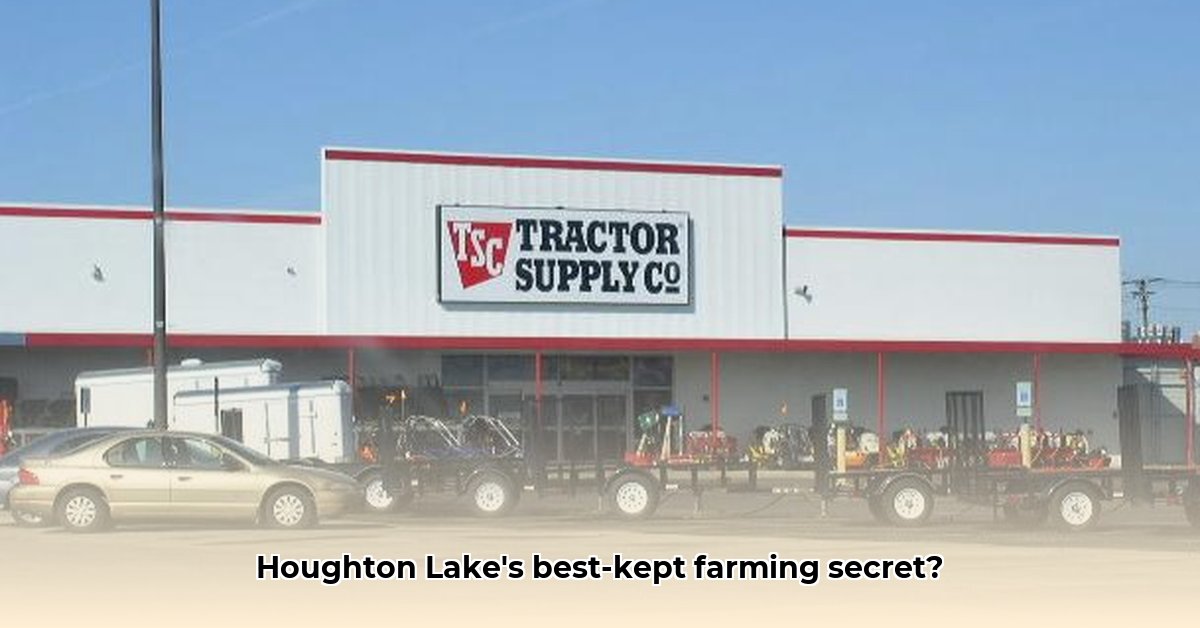
Tractor Supply in Houghton Lake serves as a vital resource for farmers and gardeners, offering a wide range of products and supporting the local agricultural community. This article explores its offerings, examines its role in sustainable agriculture, and provides actionable steps for all stakeholders to promote environmentally friendly practices. For more information on similar Tractor Supply stores, check out this nearby location.
A One-Stop Shop for Rural Needs
Tractor Supply in Houghton Lake acts as a one-stop shop for all things farming and gardening. From livestock feed and fencing to landscaping tools and riding mowers, the store caters to both large-scale farming operations and small-scale home gardeners. They also stock everyday essentials like work boots, clothing, and pet supplies, making it a convenient destination for all rural needs. This convenience contributes to the efficiency of local agricultural operations. But how can we ensure its contribution is also environmentally responsible?
Supporting Local Agriculture: A Closer Look
Tractor Supply's contribution to Houghton Lake extends beyond simply providing goods. By supplying essential tools and resources, it directly improves the efficiency and productivity of local farmers and gardeners. This, in turn, supports local food production and bolsters the regional economy. However, a more detailed understanding of the store's sourcing practices and supply chain transparency is needed to fully assess its contribution to local sustainability initiatives. Do they prioritize local suppliers? What percentage of their products are sourced regionally? Transparency in these areas would strengthen their community engagement.
Sustainability: Challenges and Opportunities
While Tractor Supply significantly supports Houghton Lake's agricultural sector, its sustainability practices require further examination. Concerns exist regarding the environmental footprint of its products and packaging, transportation methods, and overall supply chain. For example, the amount of packaging waste generated and the carbon emissions associated with product transportation are significant factors to consider. To strengthen their commitment to sustainability, the store could prioritize stocking organic seeds, fertilizers, and sustainably sourced products. This shift could significantly contribute to a greener agricultural future for the region. How can we motivate them and other businesses to shift towards more sustainable methods?
Moving Towards a Greener Future: Actionable Steps
Creating a sustainable agricultural system demands collaborative effort from all stakeholders. The following steps can help guide Tractor Supply, local farmers, consumers, and the local government toward more eco-friendly practices:
For Tractor Supply:
- Conduct a comprehensive sustainability audit: Evaluate the entire supply chain, analyzing the environmental impact at every stage, from sourcing to delivery. This audit would be an important first step towards identifying areas for improvement.
- Develop a detailed green strategy: Create a plan with specific, measurable targets for reducing environmental impact, including exploring eco-friendly packaging, optimizing transportation, and sourcing from sustainable suppliers. This strategy should be publicly available to promote transparency and accountability.
- Expand sustainable product offerings: Increase the availability of organically produced seeds, fertilizers, and other environmentally responsible products, clearly highlighting these choices to encourage consumer adoption.
For Local Farmers and Gardeners:
- Practice conscious consumerism: Prioritize sustainable products whenever possible and support businesses with demonstrably eco-friendly practices.
- Communicate your needs: Directly express your desire for more sustainable product options to Tractor Supply and other retailers.
For Consumers:
- Support businesses committed to sustainability: Actively choose businesses prioritizing sustainable operations.
- Advocate for greater transparency: Support initiatives demanding clearer labeling and detailed information about the production methods and environmental impact of agricultural products.
For Local Government:
- Establish collaborative programs: Partner with Tractor Supply and agricultural organizations to promote sustainable practices, offering incentives like grants or educational resources.
- Implement sustainable agriculture initiatives: Develop policies to support the growth of sustainable agriculture, such as funding research or establishing farmer training programs.
Conclusion: A Shared Vision for Houghton Lake's Agricultural Future
The future of Houghton Lake's agriculture depends on collective action. By working together—Tractor Supply, local farmers, consumers, and the government—we can create a more environmentally responsible and prosperous agricultural landscape. It's a shared responsibility to ensure a thriving community and a healthier environment for years to come. What specific initiatives could be implemented to foster this collaboration?